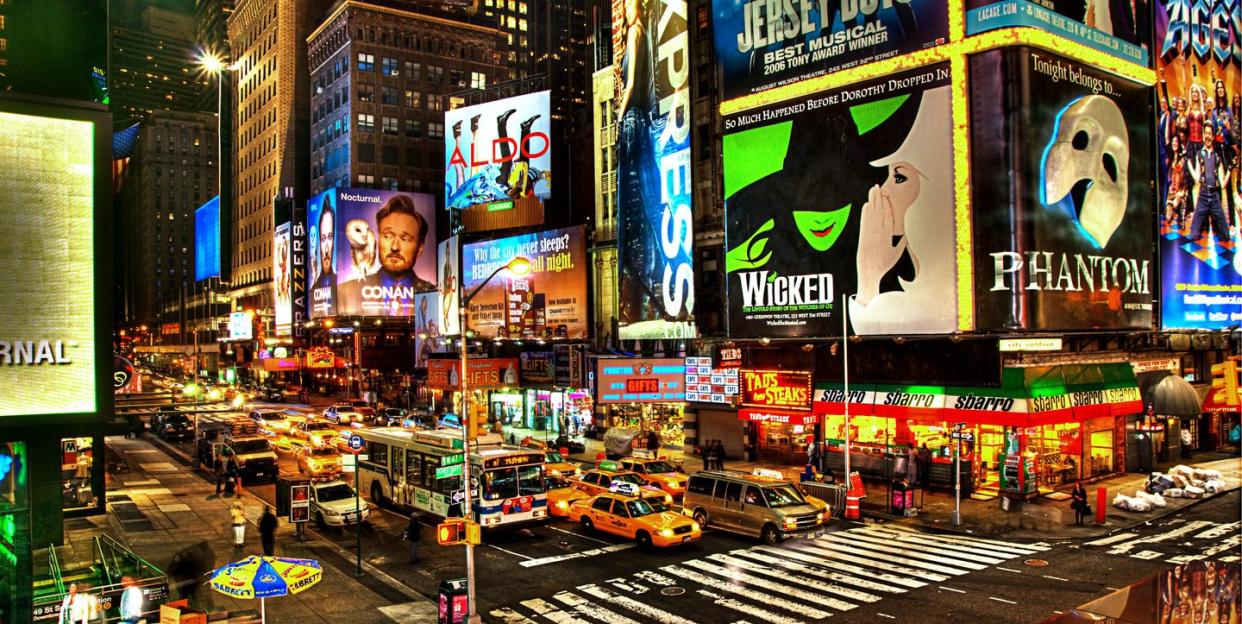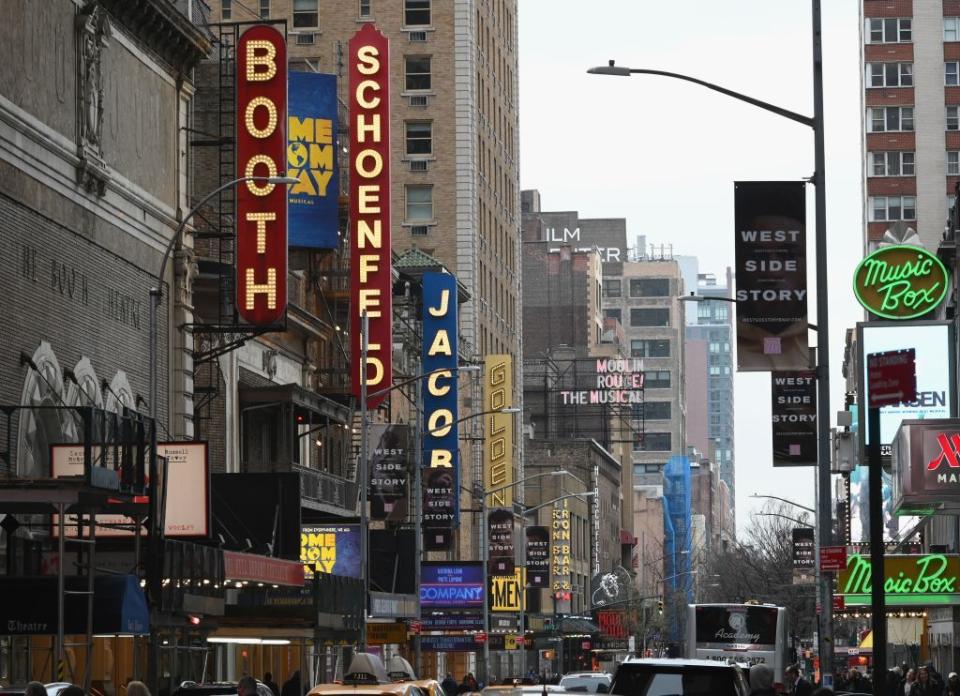How to Help the Theater Community Amid Coronavirus Cancellations

On Thursday, New York Governor Andrew Cuomo declared the State of New York would prohibit events of 500 people or more due to the coronavirus epidemic. As a result, all Broadway theaters in New York City went dark starting at 5 p.m.
There are 31 musicals and plays across the Great White Way's 41 theaters, and they represent just a small part of a vibrant artistic community of playwrights, actors, directors, and more. (They are also a fundamental part of New York's appeal to tourists—last season, according to the New York Times, the theater industry drew 14.8 million patrons and grossed $1.8 billion.)
But since the shows are often tightly packed with tourists, many of them elderly, the risk was deemed high. As if to underscore the risk, it was revealed on Friday that on of New York City's 154 confirmed caes included a Broadway usher who recently worked at theaters showing Who’s Afraid of Virginia Woolf? and the musical Six.
It may be a necessary measure but what does it mean for the artists, producers, and not-for-profit teams that produce theater around the city. Town & Country spoke with several members of the Broadway community about the closures, what it means for casts and crews, and their hopes to return to the stage soon.
Three-time Tony nominee Brandon Uranowitz, who recently starred in Burn This, says that the length of closure was "completely unprecedented." Broadway has gone dark several times, though not for this long: after September 11, the theaters were shut down for 48 hours, re-opening on September 13.
"To be stripped of our function as a salve to traumatic moments such as this is devastating for us. As theatre makers, we’re so used to providing an escape for people—a safe haven from the harsh realities of daily life. It’s our duty and our passion," Uranowitz says. "But, at this moment, we must put health and safety above all else. The decision to momentarily shutter Broadway was unquestionably the right one."

Emmy-award winning creative director and set designer David Korins agrees: "While it is obviously devastating that we will be unable to tell our stories for the next several weeks, we understand it is the right thing to do for the health of not only our show families but all the families in our great city." (Korins is currently at work on a musical version of Mrs. Doubtfire, which was set to open next month.)
"Many people's lives are changing at an alarming rate these days and I personally am trying to remain positive as we get used to our new normal," he says. "Stay in, stay safe and please know that there is a whole group of the most committed artists waiting in the wings to help lift everyone’s spirits once we are able to do it safely."
Others called for creative thinking on ways to keep audiences engaged and comforted during this time by taking aspects of live theater into digital form. Playwright Jeremy O. Harris, called for options to film performances and set up a pay-per-view platform so audiences could still enjoy shows, and provide financial assistance to actors.
I was just talking about this...is this possible @ActorsEquity, @dramatistsguild, etc?
Complications abound for something like this but would it be possible to do a pay per view crowd fund for the broadway union members affected by this UNPRECENDENTED closing @LincolnCenter ? https://t.co/pzhYI17Ft9— Former Broadway Playwright Jeremy O. Harris (@jeremyoharris) March 12, 2020
Eric Kuhn, a producer on Oklahoma! and The Inheritance, among other shows, also suggested online content would help mitigate the losses.
"While being inside the theater is a magical experience that cannot be replaced, it is now the job of producers to keep the brands of their shows—and the brand of Broadway—alive online,” he told T&C. “Audiences still want to engage in the content and follow the shows and actors on social media. It is moments like these where we form a digital community. Because, then, when theaters reopen, audiences can come back more excited than ever before."
One way that theater-lovers can help mitigate the financial stress that actors will face, Uranowitz says, is to consider taking the money used to purchase tickets and, in lieu of a refund, donating it to the Actor’s Fund or to the not-for-profit theatre producing a cancelled production.
"We will recover," Uranowitz says. "We are a strong and resilient community. And you can be damned sure that as soon as we’re given the go-ahead, we will be there to provide you with a magical escape from this insanity. In the meantime, I beg of you, please wash your hands."
You Might Also Like

